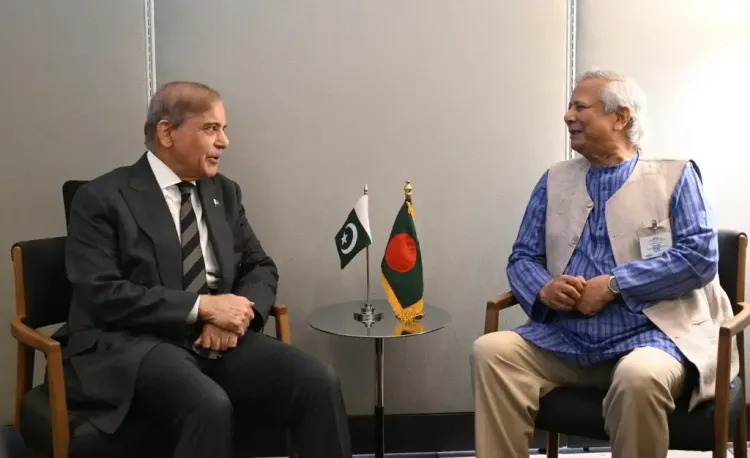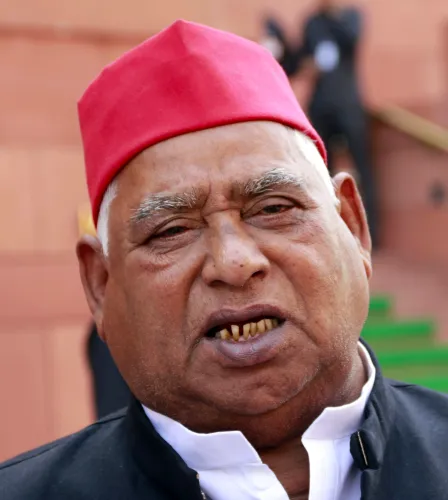Could Muhammad Yunus and Shehbaz Sharif Strengthen Trade and Economic Ties?

Synopsis
Key Takeaways
- Muhammad Yunus and Shehbaz Sharif met at the UNGA to discuss trade.
- Relations between Bangladesh and Pakistan are evolving positively.
- Historical grievances from the 1971 Liberation War remain significant.
- Yunus's interim government is fostering new diplomatic ties.
- International support for Bangladesh's elections is crucial.
New York, Sep 25 (NationPress) The Chief Advisor of Bangladesh's interim government, Muhammad Yunus, recently met with Pakistani Prime Minister Shehbaz Sharif during the UN General Assembly (UNGA) in New York.
As reported by Yunus's Press Secretary Shafiqul Alam, the discussions held on Wednesday (local time) centered on enhancing trade and economic relations between Bangladesh and Pakistan.
This was their second meeting, following their initial encounter at last year's UNGA, indicative of the increasing collaboration between Dhaka and Islamabad since the recent political shifts in Bangladesh.
Historically, relations had been tense during the 15 years of the Awami League government, largely due to past grievances like the war crimes trials and regional political dynamics.
Significant topics in the Bangladesh-Pakistan dialogue have included Pakistan's involvement in the 1971 genocide, the return of stranded assets, and issues of compensation.
However, relations have notably evolved following the establishment of Yunus's interim government in August 2024.
Last month, Pakistan's Deputy Prime Minister and Foreign Minister Ishaq Dar embarked on a two-day official visit to Dhaka, marking a historic state-level engagement by a Pakistani official in 13 years.
During his visit, Dar asserted that the long-standing 1971 genocide issue had been resolved previously, a statement that Dhaka vehemently rebuffed.
Despite their tumultuous history stemming from the horrific events of the 1971 Liberation War, which saw countless atrocities committed by Pakistani forces, both nations are now showing signs of diplomatic warming.
Alam added that Yunus also engaged in discussions with three world leaders, namely Italian Prime Minister Giorgia Meloni, President of Finland Alexander Stubb, and President of Kosovo Vjosa Osmani during his New York visit.
"Every interaction was crucial, and we believe our relationships with these nations have reached new heights," Alam commented during a press briefing in New York.
He noted that both Finland and Italy pledged their support for Bangladesh's upcoming national elections, aiming for a seamless democratic transition.
In the backdrop, Bangladesh is grappling with escalating political uncertainty ahead of the elections scheduled for next year.
The factions that previously allied with Muhammad Yunus to challenge the Awami League's leadership are currently embroiled in disputes.









